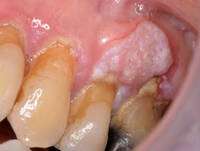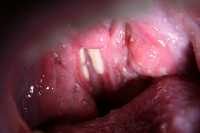Author Interviews, Cancer Research, HPV / 17.12.2021
Mouth and Throat Cancers Increasing, with Gender, Race and Regional Differences in US
MedicalResearch.com Interview with:
Ashish A. Deshmukh, PhD, MPH
Associate Professor, Management, Policy & Community Health
Associate Director, Center for Health Services Research
Co-director, Clinical Analytics and Decision Science Lab
UTHealth School of Public Health
Houston, TX 77030
MedicalResearch.com: What is the background for this study?
Response: Oropharyngeal cancer is the most common cancer caused by human papillomavirus (HPV) in the United States (US). We know from previous studies that oropharyngeal cancer to be one of the fastest rising cancers in the US. However, trends (i.e., extent of change) in incidence rates among men and women in all 50 US states and trends according to tumor diagnostic characteristics (i.e., stage, size) have not been comprehensively studied. In addition, no prior study evaluated contemporary trends in oropharyngeal cancer mortality (death) rates in the US. Our study provides a comprehensive picture of oropharyngeal cancer incidence and mortality (according to age, stage, tumor size, and state of residence) in all 50 states and DC.
(more…)




